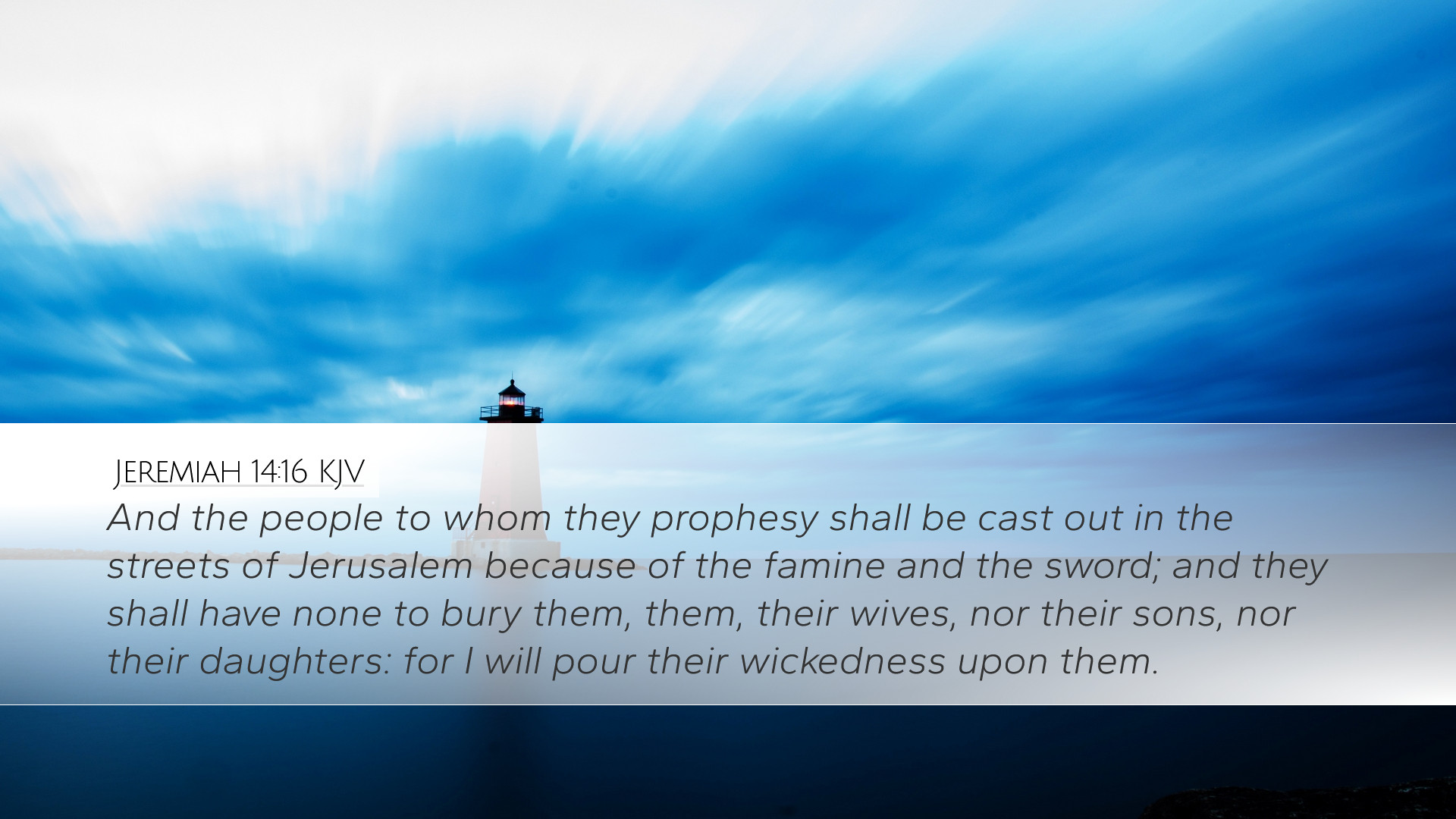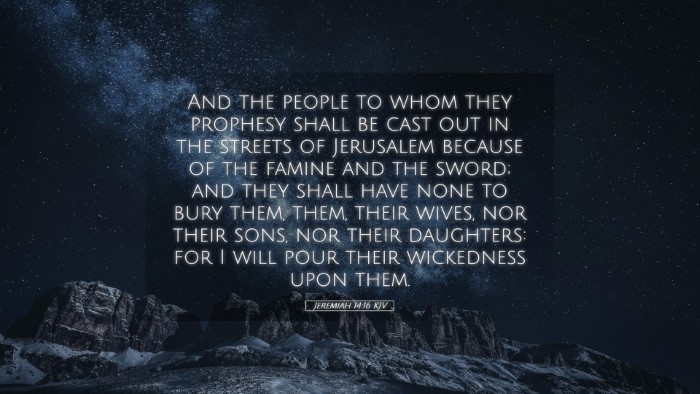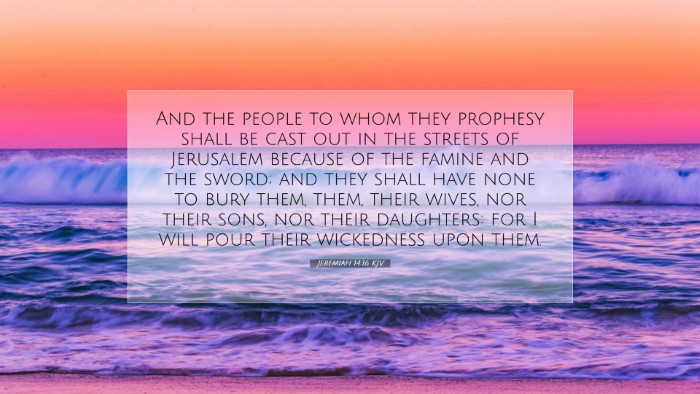Commentary on Jeremiah 14:16
Verse Context: Jeremiah 14:16 reads: "And the people to whom they prophesy shall be cast out in the streets of Jerusalem because of the famine and the sword; and they shall have none to bury them, them, their wives, nor their sons, nor their daughters: for I will pour their wickedness upon them."
Overview
This verse sits within a larger context where the Prophet Jeremiah is called to deliver a somber message regarding the fate of Judah due to their unfaithfulness to God. The backdrop is a time of severe drought, famine, and impending destruction. This dire situation reflects not just physical suffering but also spiritual abandonment and divine judgment.
Commentary Insights
Matthew Henry's Commentary
Matthew Henry expounds on the severe repercussions of false prophecies. He emphasizes that the consequences of sin are often collective, affecting families and communities. The casting out of people into the streets symbolizes utter humiliation and despair. Henry reflects on God’s justice in pouring out judgment upon a disobedient nation, showcasing His righteousness despite human failure.
Henry notes that the absence of burial signifies a complete disregard and loss of dignity. The lack of proper burial rites amplifies the tragedy, as family lineage and honor are heavily impacted. This serves as a stark reminder of the seriousness of turning away from God and the compounded sorrow placed upon those who persist in wickedness.
Albert Barnes' Notes
Albert Barnes provides a detailed analysis of the causes leading to the desolation described in this verse. He links the famine and the sword as physical manifestations of divine displeasure. Barnes argues that such calamities are often the result of persistent and willful disobedience against God’s commandments. He points out that the people’s expectation of divine protection was misplaced—rooted in their superficial worship rather than genuine repentance.
In Barnes' view, this lack of authentic faith leads to dire consequences, not only for individuals but across entire generations. He stresses the importance of true prophetic warning—those who didn’t heed Jeremiah’s message face repercussions for their stubbornness. The emphasis on being left unburied echoes themes of spiritual death resulting from separation from God and highlights the urgency of return to genuine faith.
Adam Clarke's Commentary
Adam Clarke’s examination is rich with insights about community dynamics and divine judgment. He comments on the social fabric of Jerusalem and how the prophecy’s fulfillment would disrupt the entire societal structure. Clarke highlights that during such crises, personal loss intertwines with communal despair, emphasizing the helplessness felt by families whose members perish in famine or violence.
Furthermore, Clarke interprets the phrase "pour their wickedness upon them" as a poignant metaphor for divine justice. He conveys the idea that while God is merciful and patient, His wrath against unrepentant sin is also certain. Clarke outlines that this verse acts as a sobering reminder of God’s holiness and the dire consequences of turning away from His ways. In a broader theological context, Clarke encourages readers to reflect on their lives, assessing areas where they may be neglecting their spiritual duties and obligations.
Application for Today
This verse and its accompanying commentaries underscore several key points relevant to modern spirituality:
- The Danger of False Security: Many today may rely on surface-level faith or tradition instead of true relationship with God. This text serves as a warning against complacency.
- The Importance of Genuine Prophetic Voices: In a world filled with competing influences, discerning true messages from God is paramount. This highlights the need for robust theological education rooted in Scripture.
- Collective Responsibility: Just as Judah's fate was intertwined with their corporate actions, so too are contemporary communities affected by sin. This invites serious reflection on societal values and practices.
- The Urgency of Repentance: The impending judgment illustrated in the passage calls for an urgent return to God by individuals and communities alike.
Conclusion
Jeremiah 14:16 presents a powerful reminder of the consequences of turning away from God and illustrates the seriousness of prophetic warnings. Insights from Matthew Henry, Albert Barnes, and Adam Clarke illuminate the text, providing depth and clarity for understanding both the historical context and its relevance today. Pastors, students, theologians, and Bible scholars are encouraged to engage with this text deeply, allowing it to provoke contemplation and transformation in their own spiritual journeys and communal responsibilities.


